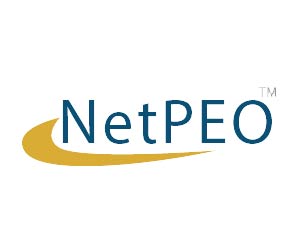When a business enters into a partnership with a professional employer organization (PEO), it also enters into a co-employment relationship. The two companies share legal obligations and responsibilities in regard to the employees.
The business owner(s) continue to own and maintain all business operations, but for the purposes of processes such as payroll, obtaining and administering benefits, tax submission, and certain legal functions, the PEO partner is a co-employer.
The specifics of what falls under the scope of the PEO and the business is fully laid out in the agreement between them called the client services agreement (CSA). This document allows the company to retain complete control over the tasks and functions the PEO will take on and what the business itself will continue to do internally. Who bears regulatory compliance obligations depends on the roles and duties set out in the CSA.
Shared Risk
In a co-employment relationship, just as particular duties are shared, the risk is shared between your business and your PEO partner. This applies to compliance, in particular.
Your PEO partner will share information and resources in regards to federal, state, local, and industry-specific regulations and compliance issues.
As laid out in your CSA, your PEO partner will provide advice and instructions on how to remain in compliance. It is, however, up to the business itself to take any necessary action(s) to meet the requirements.
For example, the Department of Labor requires businesses to notify qualified employees of their eligibility for the Family and Medical Leave Act. Your PEO partner can guide you through the requirements and notification options. But, it will be up to you as the business owner to ensure the communications with the appropriate employees actually happen.
The advantage of having two co-employment entities with shared risk is that your PEO partner will do everything possible to work with you and ensure you do what is needed to remain in compliance. That minimizes your business risk as well as theirs.
Obligations Your PEO Takes On
In general, the risks taken on by your PEO partner will include compliance with:
- The Fair Labor Standards Act (FLSA)
- Equal Employment Opportunity Commission (EEOC)
- The Immigration Reform and Control Act (IRCA)
- The National Labor Relations Act (NLRA)
- The Family Medical and Leave Act (FMLA)
- COBRA
- The Americans with Disabilities Act (ADA)
- ERISA
- Unemployment taxes (depending on the state)
- Trust fund taxes
- Income taxes
- Remitting and filing taxes on behalf of its partner company
As organizations such as the National Labor Relations Board (NLRB) consider a PEO as a joint employer, your PEO partner is also required to maintain compliant practices in regards to labor-related items such as collective bargaining agreements, union organizing, and more. PEOs are obligated to provide “co-employees” with compliant places of work.
In the case of filing taxes, if a PEO does not perform its duties, the company itself will face legal and financial penalties. In addition to clearly outlining duties specific to the company and to the PEO in the CSA, best practices dictate the company should monitor all tax filings and payments.
PEOs also carry specialized insurance such as staffing insurance to help them manage risk on their end.
Additional Benefits of Partnering with a PEO
The tax, employee, benefits, and compliance responsibilities and liabilities that are taken on by a PEO are a significant reason many businesses partner with PEOs. However, there are significant additional benefits for businesses to work with a PEO partner.
Obtaining and Managing Benefits
As a co-employer, a PEO partner adds your business’s employees to their national pool. This allows for significant bargaining power to obtain world-class benefits at affordable prices small- to medium-sized businesses wouldn’t otherwise have access to.
Payroll Administration
Instead of spending valuable time and focus on administering business payroll on your own, a PEO partner can automate the process and manage W2, wage garnishments, withholdings, and more.
Recruiting and Onboarding
Many PEOs offer assistance with employee recruiting and can streamline your company’s onboarding processes.
An Instant Human Resources Department
Day-to-day human resources tasks can take up an inordinate amount of a business owner’s time. A PEO partner can remove the HR burden while providing consistent and proven policies and processes for employees.
Working with NetPEO
NetPEO does a deep dive into your company’s operations and needs to truly understand how a PEO can help and support your business goals. Once we understand how a PEO can be most beneficial to you, we search through our national network of highly qualified PEOs and present you with a carefully curated list of choices.
Once you choose your PEO partner, we maintain open communication with you to ensure the high level of service we expect is being maintained. In other words, client satisfaction is our number one goal.
NetPEO is proud of our 95% client retention rate — the highest in the industry. This exceptional accomplishment is due to the fact that our clients are satisfied with their benefits packages, pricing, accessibility, communication, and customer service.
Schedule Your Comprehensive Business Assessment Today
If you have questions when it comes to your PEO relationship, call NetPEO at (678) 841-7146. We’re happy to answer any questions you might have about PEOs and the benefits of PEO partnership. We can get started with a broad business assessment and provide you with customized options.



